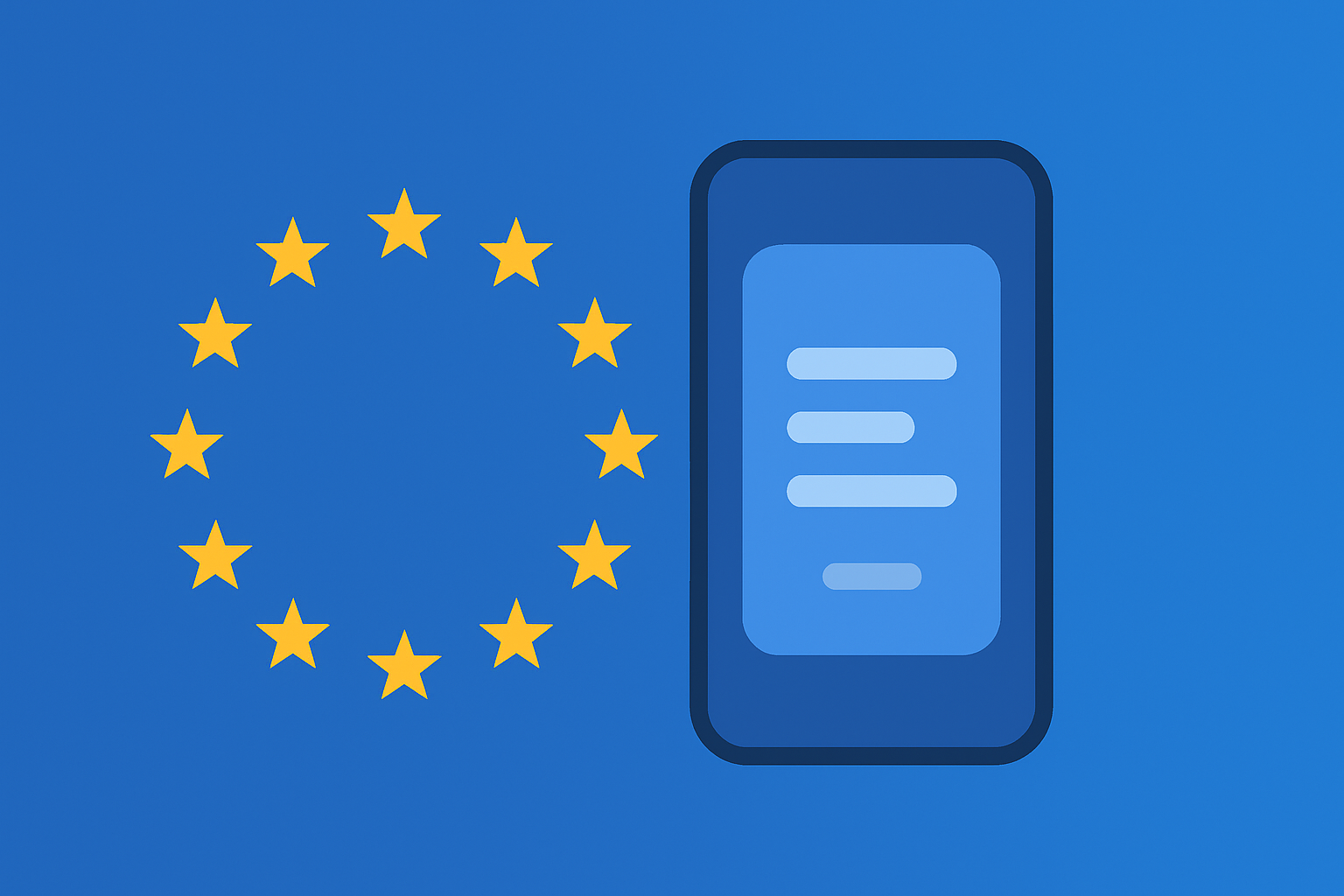TTPA Day One: Electica has Digital Ads Live in Europe
TL;DR
- Meta and Google suspended EU political advertising rather than comply with TTPA (Reg. 2024/900).
- Electica is TTPA-compliant and operational from day one (10 October 2025), offering progressive parties, NGOs, and agencies immediate access to programmatic inventory.
- We’ve built the full compliance stack: sponsor attestations, on-ad transparency labels, public Ads Library, 7-year retention, and integration-ready architecture for the EU repository.
- Result: EU political advertisers can launch campaigns immediately with premium open-web inventory, full transparency, and regulatory compliance – without waiting for platform reversals.
Want to chat with us? Get in touch!
Hello – We’re Live in Europe!
It’s an incredibly exciting day for Electica, when we can proudly announce that we’re live with TTPA-compliant ads in the EU.
Here’s some background on the state of regulation, why Google and Meta have left EU political ads for good, and what Electica has done to comply.
The Platform Exit Created an EU Political Advertising Vacuum that Electica is Filling.
As of today (October 10, 2025), the EU’s Transparency and Targeting of Political Advertising Regulation (TTPA, Reg. 2024/900) takes effect. Meta and Google both announced they would not accept political advertising in the EU under the new framework, choosing to exit the market rather than invest in compliance.
For EU political parties, candidates, advocacy organizations, and agencies running political campaigns, Google and Meta’s departure isn’t a temporary pause – it eliminates the two of the best-known paid channels for reaching voters at scale.
The asymmetric impact: Progressive political organizations rely on paid advertising to compete with extremist organic content. Divisive, viral-optimized messaging doesn’t need ad budgets. Evidence-based policy communication, voter education, and good-governance campaigns do. The platform blackout doesn’t affect both sides equally – it advantages actors who thrive on clickbait hate over thoughtful messaging.
The compliance reality: TTPA compliance is technically complex but entirely navigable for those, like Electica and our partners, that have a stake in the outcome. The regulation requires structured transparency labels, sponsor verification, 7-year record/data retention, and eventual integration with the EU’s central repository. Sure, that’s a lot, but Electica is happy to assume those obligations while other platforms didn’t. They assessed the required investment against EU political ad revenue and bailed. That decision opened market space for programmatic infrastructure built specifically to handle political compliance within the EU.
Programmatic advertising – delivered through our managed service, (coming soon!) our self-serve platform Advocate, and publisher-direct relationships – now provides the compliant route to premium inventory.
For political advertisers, this isn’t a stopgap. It’s the new primary channel for EU campaigns.
Electica’s TTPA-Compliant Infrastructure: Operational October 10
Electica is live for EU political advertising from day one of the TTPA era. We built complete TTPA compliance infrastructure to serve progressive political organizations, parties, and agencies who need lawful reach the moment the Regulation takes effect.
Why We Built This
Running paid digital political campaigns is Electica’s DNA. It’s what we do. What’s more, Electica is a transatlantic company that’s grounded in Europe in so many ways – co-founded by an Italian, incorporated in Ireland, with twelve European team members who’ve executed digital campaigns across just about every EU member state. When Google and then Meta’s exit became clear, we recognized the opportunity: We can fill the void, providing a paid ads channel for progressive democratic actors that would otherwise lose one of the best ways to contact voters.
We view political advertising as a social good. We built TTPA compliance because progressive organizations deserve the tools to reach constituents at scale and combat far right extremist organic content.
Simply put, we had the technical capability and political expertise to deliver it.
What TTPA Actually Requires
The Regulation introduces harmonized rules for political advertising across all 27 member states. Any paid communication intended to influence EU citizens’ political opinions, participation, or voting behavior must now meet transparency and due-diligence obligations that apply uniformly across the EU.
Core requirements:
- Standardized on-ad transparency labels with structured fields such as sponsor identity, campaign objectives, time period, targeting rationale, spending range clearly visible to the viewer.
- Sponsor attestations verifying EU establishment, lawful funding sources, and eligibility to act as political advertiser by our partners.
- Seven-year record retention in machine-readable format, accessible to competent authorities and the EU repository (when the EU actually gets it online next April).
- Targeting restrictions prohibiting use of special-category personal data without explicit consent and preventing targeting of minors below voting age.
- Third-country guardrails requiring enhanced verification for non-EU sponsors during the three months preceding elections.
The Regulation replaces fragmented national rules with unified standards. Compliance burden increased, but so did the transparency and accountability framework that will legitimize political advertising across Europe.
Electica’s Compliance Infrastructure: What We Built
We designed a compliance-first system, working with EU-based expert legal counsel to ensure every component aligns with both regulatory requirements and practical campaign operations.
Client Onboarding & Sponsor Attestations
We built structured intake workflows that collect the information TTPA requires to verify sponsor eligibility and complete transparency disclosures, such as:
- Sponsor identity and EU establishment status (legal name, registration, member state)
- Funding source declarations (self-attestation of lawful funding origin)
- Authorized contact information for regulatory communication
- Campaign-specific attestations including policy objectives, target geographies, and flight dates
This is self-attestation, consistent with the Regulation’s design. We collect and verify that declarations are complete, then maintain records for regulatory review, and flag any inconsistencies.
Automated Transparency Labels & Disclaimers
Every ad we serve carries a standardized on-ad label meeting the Commission’s format requirements. Each label links directly to our public Ads Library with detailed campaign information.
Technical implementation: Labels are generated from sponsor attestation data and applied on each ad. We handle formatting, placement, and linking on the backend. This reduces error, ensures consistency, and removes compliance friction from campaign workflows.
Public Ads Library
We’ve built a searchable, public-facing repository displaying all required information about campaigns we serve:
- Sponsor identity and contact information
- Campaign objectives / relevant election
- Targeting information
- Flight info and total spend ranges
- Links to creative assets
The library meets TTPA’s transparency mandate. Any EU citizen can search by sponsor, time period, geography, and more to understand who’s advertising, what they’re saying, and how much they’re spending.
Repository timeline: The European Commission is developing implementing acts for the central EU repository, with technical specifications expected by April 2026 and submission infrastructure operational by June 2026. We’re building our data repository to seamlessly send the data to the Commission. When the repository goes live, we’ll transmit historical records and integrate ongoing campaign data automatically. Clients won’t need to take action – we handle regulatory submission ourselves on the backend.
Targeting Restrictions: Beyond Minimum Requirements
TTPA permits the use of personal data for targeting with explicit consent. We’ve chosen a more restrictive approach: we limit all political campaigns to geographic and contextual targeting, avoiding special-category personal data entirely.
Our Rationale: This exceeds minimum regulatory requirements but dramatically simplifies compliance, reduces audit risk, and aligns with best practice for democratic advertising. Geographic and contextual signals provide effective reach for political campaigns without the data-handling complexity and potential liability of consent-based personal data targeting. We’ll continue to review our targeting practices over time, and provide updates if we feel confident using other compliant targeting methods.
Clients will benefit from simplified workflows and reduced regulatory exposure. This approach balances campaign performance with compliance durability as the regulatory landscape matures.
Supply Strategy: How We Get Your Ads Live.
No Meta or Google Inventory
Social platform inventory is unavailable for EU political campaigns under TTPA. This is a permanent strategic shift, not a temporary disruption.
Publisher Response Varies by Jurisdiction
The TTPA landscape triggered varied publisher responses across member states. Most jurisdictions show publishers actively seeking compliant political revenue. We’ve secured access to premium open-web inventory – including display, video, and connected TV – through direct partnerships with publishers who’ve assessed TTPA obligations and are accepting compliant campaigns.
Our approach: We broker relationships with publishers who understand the compliance framework and are prepared to serve political advertising lawfully. We don’t avoid political content – we work with supply partners who’ve done their homework and recognize the legitimate role of paid political communication. Some jurisdictions show near-term supply constraints. We’re monitoring this closely and expect resolution as publishers in each country complete their own legal assessments and adapt to the new landscape.
National Rules Layer on Top of TTPA
The Regulation harmonizes EU-level requirements but doesn’t override member-state restrictions:
- Electoral blackout periods (e.g., pre-election silence days)
- Broadcaster-specific content rules for TV and radio inventory
- National disclosure requirements that may exceed TTPA minimums
We pre-check local constraints for each campaign geography and advise on jurisdiction-specific tactics. TTPA provides the baseline; national rules still apply in parallel.
Let’s Get Your Campaigns Live
The platform exit created a gap. We built the infrastructure to fill it. EU political advertising is operational, compliant, and available from day one.
Contact us to start onboarding: [email protected]
For agency partnerships: [email protected]
Questions about jurisdiction-specific requirements or edge cases? We’re here to work through the details. Political advertising under TTPA is navigable – and we’ve built the systems to make it straightforward for campaigns focused on reaching voters, not managing regulatory compliance.




